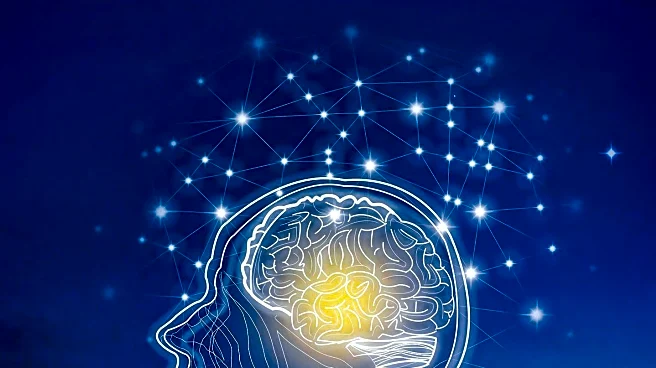What's Happening?
A recent study published in the Journal of Magnetic Resonance Imaging has found that long-term users of ayahuasca, a psychoactive brew traditionally used in Amazonian rituals, exhibit distinct patterns of brain activity and increased psychological resilience. The research involved 38 healthy adult males in Brazil, with 19 being long-term ayahuasca users and 19 non-users. Participants underwent brain scanning using functional magnetic resonance imaging while performing tasks designed to activate emotional brain circuits. The study revealed that ayahuasca users scored higher on resilience scales, indicating greater emotional adaptability. Machine learning models distinguished between the brains of users and non-users with 75% accuracy, highlighting differences in regions involved in emotional regulation.
Why It's Important?
The findings suggest that regular, ritualized use of ayahuasca may lead to positive psychological and neural adaptations, potentially offering new therapeutic opportunities for emotional resilience. This research contributes to the growing interest in ayahuasca's mental health benefits, providing evidence that long-term use might influence emotional processing in beneficial ways. The study emphasizes the importance of structured spiritual contexts in shaping outcomes, cautioning against widespread use without proper guidance. These insights could inform regulatory science and therapeutic practices, bridging traditional knowledge with modern neuroscience to address emotional suffering.
What's Next?
Future research is needed to explore these findings across diverse populations and settings. The study's authors plan to expand investigations using advanced technologies like liquid biomarkers and neuroimaging to better understand ayahuasca's effects on the brain and emotional health. This could lead to more integrated studies and potentially new therapeutic applications. The researchers aim to reduce stigma and prejudice by providing evidence-based understanding, merging ancestral wisdom with scientific inquiry to uncover new paths to healing.
Beyond the Headlines
The study highlights ethical considerations regarding the use of ayahuasca, emphasizing the need for respect, self-knowledge, and proper integration in its consumption. It underscores the role of structured spiritual communities in providing psychological support, which may influence resilience independently of ayahuasca itself. The research opens discussions on the balance between traditional practices and scientific validation, aiming to transform ancient wisdom into measurable scientific knowledge.









